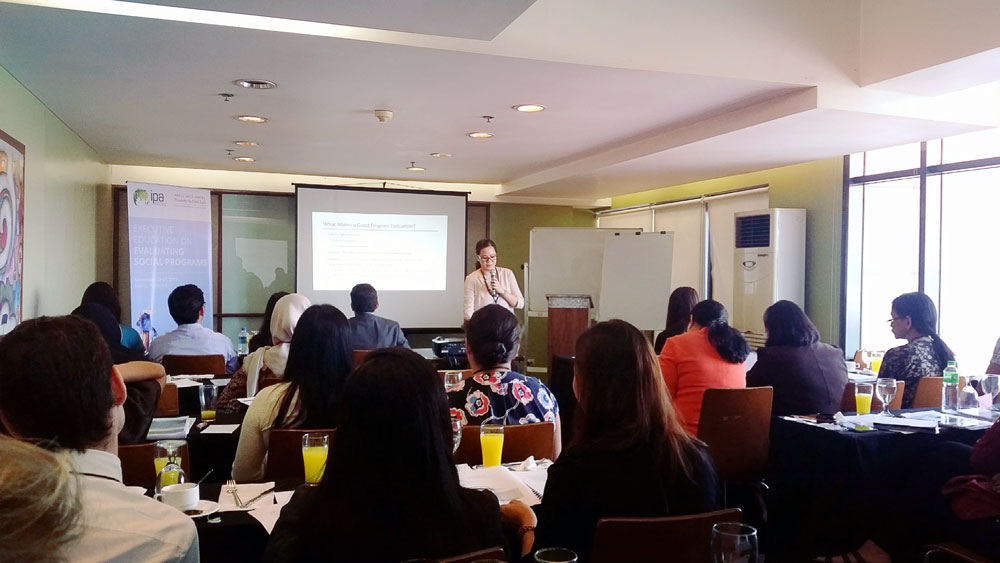Executive Education on Evaluating Social Programs
The Abdul Latif Jameel Poverty Action Lab Southeast Asia (J-PAL SEA) and Innovations for Poverty Action - Philippines hosted managers and researchers from international development organizations, foundations, governments and non-governmental organizations from around the world, as well as trained economists looking to retool, in an Executive Training program.
This five-day program on evaluating social programs provided a thorough understanding of randomized evaluations and pragmatic step-by-step training for conducting one’s own evaluation. It focused on the benefits and methods of randomization, choosing an appropriate sample size, and common threats and pitfalls to the validity of the experiment. While the program centered around the why, how and when of Randomized Evaluations, it also imparted insights on the importance of a needs assessment, measuring outcomes effectively, quality control, and monitoring methods that are useful for all kinds of evaluations.
Course Coverage:
Specifically, the following key questions and concepts were covered:
- Why and when is a rigorous evaluation of social impact needed?
- The common pitfalls of evaluations, and why does randomization help
- The key components of a good randomized evaluation design?
- Alternative techniques for incorporating randomization into project design
- How do you determine the appropriate sample size, measure outcomes, and manage data?
- Guarding against threats that may undermine the integrity of the results
- Techniques for the analysis and interpretation of results
- How to maximize policy impact and test external validity
- For lectures videos and course content from a past Executive Education course, please click here.













